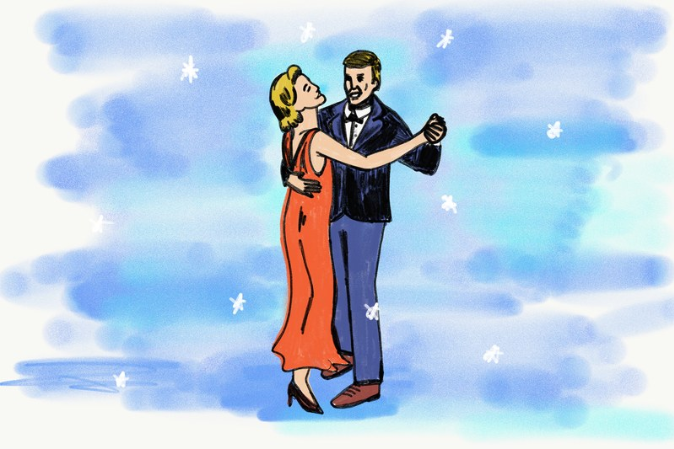Tag: gq.com
The “Baby, It’s Cold Outside” Discourse Is Boring as Hell
We’ve had the same argument for the last decade. Let’s… not.
On December 3, I got a press release about an artist who’d released a new album of both secular and religious Christmas songs. Instead of flaunting the songs she included, the entire email was about what wasn’t there. “Although she sympathizes with the movement, [the artist] is hardly a MeToo activist,” it read. “And she definitely wanted to include a romantic, even ‘sexy’ song among the 14 in her album. ’Baby It’s Cold’ was a default choice, but the more she studied the lyrics the more she was led to say ‘there’s no way I’m going to sing that song.’”
Good for her! It’s an overplayed (thanks, Elf) song that actually never mentions Christmas so it’s weird to put it on a Christmas album. But oh my god, I am so bored of the “Baby, It’s Cold Outside” discourse. Play it or don’t. It’s not a grand political position!
Let’s take a look at how we got to a time in which people will jump into your DMs about a song that you mainly hear piped in the background of department stores. The song was written in 1944 by Frank Loesser, whose songs you may have enjoyed in Guys and Dolls. He originally performed it as a flirtatious duet with his wife, Lynn Garland, at parties as an indication the night was over. “We become instant parlor room stars. We got invited to all the best parties for years on the basis of ‘Baby.’ It was our ticket to caviar and truffles. Parties were built around our being the closing act,” wrote Garland. But, in 1948, Loesser sold the song to MGM, and it won an Oscar for Best Song in 1949 after it was featured in the film Neptune’s Daughter.
The song was always about pursuit. In the original sheet music, Loesser labeled the two parts as “wolf” and “mouse,” setting up a predatory dynamic. But John Loesser, Frank Loesser’s son, told Vanity Fair that “it was a flirtatious, wonderful, sexy number between people who like each other. It really wasn’t anything but that.” It’s two people sizing each other up, doing a bit of verbal sparring, in that way that a lot of flirtation is. In most recordings, you can hear the smile in the “Mouse’s” voice. It doesn’t sound like entrapment.
But the artist is dead. In the 70 years since the song was written, more and more people have pointed out the Wolf blows past any idea of “no means no,” and that there’s a very thin line between consenting to a bit of a playful chase and pressuring someone to drink and not leave your house. In the past few years, it seems every December begins with at least one “remember, ‘Baby It’s Cold Outside’ is about date rape” take. A number of radio stations have banned the song this season, though some have faced blowback from the decision.
The problem is, both sides can find support for their arguments in the song. Those who defend it can point to lines like “I ought to say no, no, no sir / At least I’m gonna say that I tried” as proof that what she’s really worried about is the social stigma (much stronger in 1944) of staying late at a man’s house, and that were it not for nosy neighbors and family, she wouldn’t be trying to leave at all. Some even say it’s a feminist condemnation of gender expectations! But those who want it thrown out can point to the Mouse asking “Hey, what’s in this drink?” and “You’re very pushy you know?,” to which the Wolf responds “I like to think of it as opportunistic.” It’s easy to read that as creepy and predatory.
I’m all for erring on the side of making sure more people feel supported and included than not, and if the song is triggering and traumatizing then by all means, let’s not play it. But there’s a thirst with which people are ready to remind you that it’s a Bad Song, in the moral sense, as if that’s both the only reading and the only lens through which art is consumed. And as if morality is at all standardized. Perhaps it’s the cyclical nature of Christmas songs (though again, the song never actually mentions Christmas, or any holiday, only that it happens to be cold, and even that could be all in jest). “Blurred Lines” and “Animals” had their rotations, but “Baby, It’s Cold Outside” comes back every year, inspiring the same arguments that never get resolved.
They’ll never be resolved, because that’s not how art works. Songs can be read multiple ways. People can calculate aesthetics and personal morality and draw different conclusions. I hear the song a different way each time I hear it. Sometimes it makes me feel playful and warm, other times I reel at the Wolf’s lyrics. In many ways I’m glad to have been asked to think twice about it, in the same way I find myself analyzing the stalker dynamics of rom-coms I took at face value as a teenager. But what you think about “Baby, It’s Cold Outside” represents just that—not that you’re more woke or more reasonable than those who disagree with you, not that you’ve aligned yourself with larger political strands. Just that you heard the song and, for all the reasons we are either drawn to or repulsed by art, landed somewhere.
Opinion Ed via GQ.com


